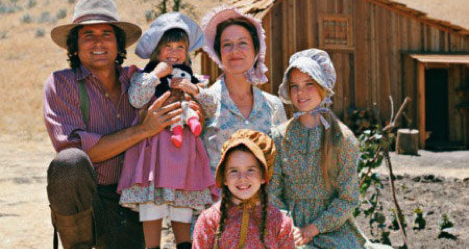
The Weird Libertarian Trojan Horse That is the Little House Books
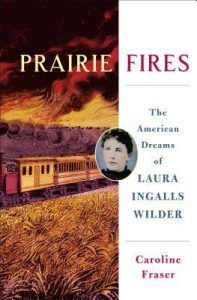 Recently, I started reading the new biography of Laura Ingalls Wilder, Prairie Fires. Which led to me rereading all of the books thanks to the magic of Overdrive, since I realized I’d never revisited them as an adult. Some of the books, namely The Long Winter and Little House in the Big Woods, were such favorites of mine as a child that I read them until the covers fell off.
Recently, I started reading the new biography of Laura Ingalls Wilder, Prairie Fires. Which led to me rereading all of the books thanks to the magic of Overdrive, since I realized I’d never revisited them as an adult. Some of the books, namely The Long Winter and Little House in the Big Woods, were such favorites of mine as a child that I read them until the covers fell off.
It’s not a surprise to adult me that the books are pretty dang racist at times. (Racist enough that this year, the American Library Association took Wilder’s name off an award.) I wasn’t the most racially aware suburban white kid in the ’80s, but even then I was super creeped out by the ways Native Americans were talked about in the books. Particularly notable is the scene in Little House on the Prairie where Laura throws an absolute fit because Pa won’t “get her” a baby she sees a Native American woman carrying. Even now I can remember how uncomfortable that made me. I also remember my mom having to explain to me how racist the “minstrel show” in Little Town on the Prairie was because I just didn’t have the context to get it. But I will say that grown-up me picked up on a lot more cringe-y stuff in this read through, like the Ingallses singing a song in dialect. Yikes.
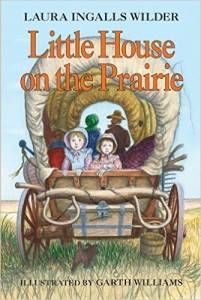 All that, I already knew I was getting in to. What I wasn’t expecting was all the libertarian stuff—things that weren’t even on my radar as a kid. But when you go into reading the books as an adult with a modicum of political awareness, particularly of the myth of the Independent Pioneer Farmer Who Owed No One Anything, whew. That’s all I can say. Whew.
All that, I already knew I was getting in to. What I wasn’t expecting was all the libertarian stuff—things that weren’t even on my radar as a kid. But when you go into reading the books as an adult with a modicum of political awareness, particularly of the myth of the Independent Pioneer Farmer Who Owed No One Anything, whew. That’s all I can say. Whew.
For one thing, just pay attention to how many times the phrase “free and independent” shows up in the books. I started really noticing it after a while, with Pa and other farmers throwing in few sentence philosophical asides about how they were Free and Independent and owed nothing to anyone, except curse the government and its taxes. (Which is not to say that the government at the time was not worth criticizing; just look up sometime how farmers who had their lives destroyed by the locust swarm were treated. Spoiler: it wasn’t good.) There’s a caution repeatedly expressed about how no one should owe anyone anything—understandable in a certain light considering how farmers got regularly destroyed by debt—but it often comes across as a fear of community. Several times in the books there’s discourse about how farmers are the only truly independent people, because they can live without needing to depend on anyone else, unlike merchants and craftsmen.
There’s a weird tension in the books that you pick up on as you read. On one hand, there’s the “free and independent” talk. On the other, there’s no interrogation or even acknowledgment of the fact that the farmers do have to rely on the skill of those that get looked down on, the cobblers and wagon wrights and other skilled craftsmen who make the machines the farmers go into debt to get. The farmers cooperate all the time (particularly at harvest time), and neighbors help each other, and the Ingallses regularly get charity through their church. The lack of interrogation of the abject poverty of the family is absolutely striking on a re-read. You get glimmers, such as child Laura seeing how unequal things are between her and her peers, or adult Laura complaining how unfair it is that the farmers basically mortgage themselves constantly to people in town, and it sits uncomfortably with the “free and independent” refrain and the implication that if you just work hard enough, you’ll get ahead (“There is gold on the farm, boys, If only you’d shovel it out.”)—because no one ever does.
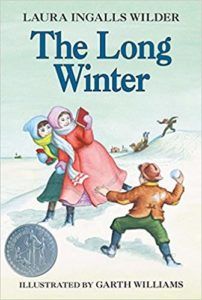 Perhaps the most egregious weirdness comes in during The Long Winter, where Laura wishes that they didn’t have to live in town because it would mean Pa wouldn’t have to risk himself with the other men to try to find people lost in the blizzard. While that can be put down to a daughter just being really concerned about her father, later on when the town is starving, things get even weirder.
Perhaps the most egregious weirdness comes in during The Long Winter, where Laura wishes that they didn’t have to live in town because it would mean Pa wouldn’t have to risk himself with the other men to try to find people lost in the blizzard. While that can be put down to a daughter just being really concerned about her father, later on when the town is starving, things get even weirder.
For those unfamiliar, it goes like this: Almanzo has his store of seed wheat hidden behind a false wall in his brother’s store, so the starving people don’t know it’s there to try to eat it. (Almanzo and his brother, it should be noted, still have plenty of food.) After being confronted by the fact that the Ingalls family and others are literally starving, Almanzo decides to go on an honestly quite heroic journey with a friend to try to find a settler who is said to have a bunch of wheat and buy that for the town—because he goes through a pretzel of logic to justify that his wheat isn’t enough to make a difference to all the starving people, but this other guy’s might be. When they find the man, he doesn’t want to sell his wheat, because like Almanzo, he’s going to use it for seed. The arm-twisting that commences is absolutely impressive, and incredibly hypocritical on Almanzo’s part. They buy the wheat, bring it back, and then the storekeeper who gave them the money tries to sell it at an absolute price gouge. Cue Pa Ingalls whipping out the phrase “free and independent” and basically browbeats the storekeeper into being less of a jerk by threatening that no one will do business with him once the winter ends.
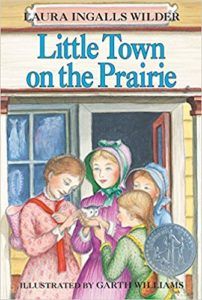 As a kid, I didn’t really understand just how off and conflicting the entire story is. Adult me can see the cracks very well. Though that doesn’t have a patch on the super bizarre internal monologue Laura has in Little Town on the Prairie, about how “God is America’s King.” And about the “list of crimes” of the British King that gets read at the Fourth of July celebration that made so little sense to me as a child that I just skipped over it because I wanted to read more cute things about horses and farming.
As a kid, I didn’t really understand just how off and conflicting the entire story is. Adult me can see the cracks very well. Though that doesn’t have a patch on the super bizarre internal monologue Laura has in Little Town on the Prairie, about how “God is America’s King.” And about the “list of crimes” of the British King that gets read at the Fourth of July celebration that made so little sense to me as a child that I just skipped over it because I wanted to read more cute things about horses and farming.
Of course, the punchline to all of this is that it makes so much sense once you know that Laura Ingalls Wilder’s daughter, Rose Wilder Lane, edited her mother’s books and was also one of the founders of the American Libertarian Movement, along with her contemporary Ayn Rand.
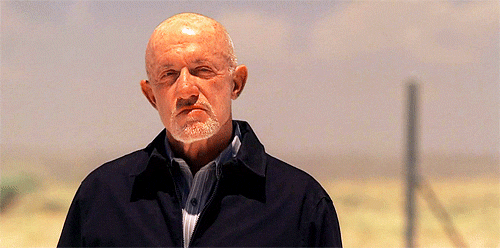
For a better discussion than I could possibly provide in a (relatively) short blog post about the weird writing interchange between Laura Ingalls Wilder and her daughter, just read Prairie Fires. What I’m more thinking about now is how I absorbed these books when I was a kid, particularly the myth of the Independent Farmer, which ultimately got translated to being an Independent Westerner. The Little House books are definitely not the only source of that poisonous cultural worship of bootstraps in America, but they’re ones that I absolutely treasured. I grew up at the edge of the great plains, after all. These books are basically in my blood. And I’ll admit, in my early twenties, I had a serious flirtation with libertarianism…up until I ended up needing the social safety net. How much of my culture consumed had me thinking I didn’t owe anyone a thing and I totally wasn’t part of a supportive community even though I really was? No way of knowing.
The Little House books are very good at building up the idea of free people who get by on their hard work and grit (except that they get constantly screwed by natural disasters, whoops) and owe no one a thing, while still showing the Ingalls family as part of a vital community in a way that never really gets acknowledged. They’re books that deserve to have these tensions interrogated and their subtle and unsubtle propaganda understood. And between all that, they’re still absolutely gorgeous at times. It’s just a beauty I can no longer accept uncritically.








